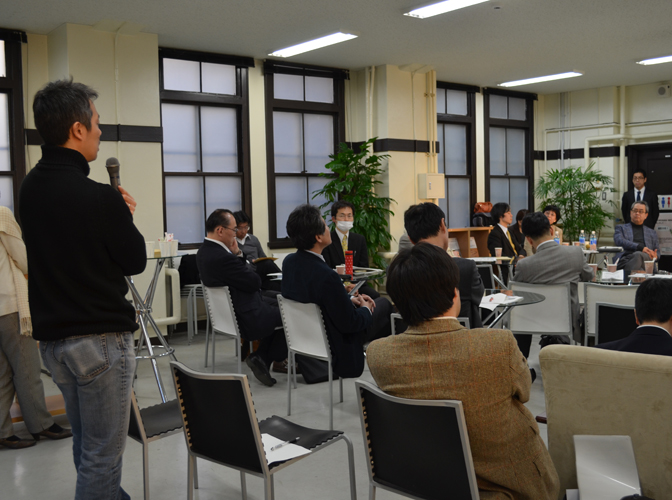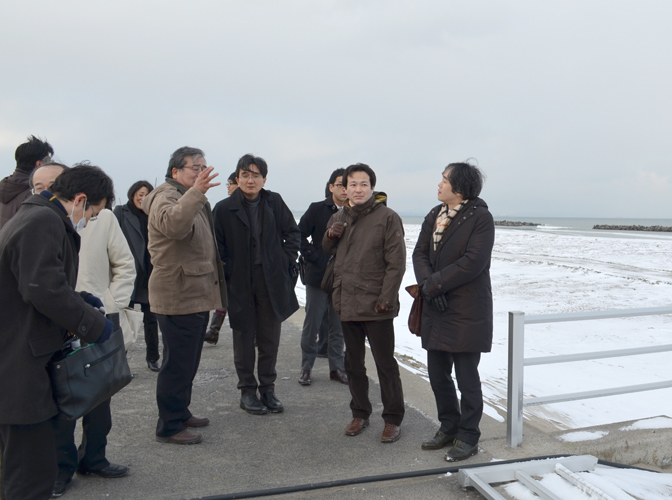Interdiciplinary Approach RCAST "Great East Japan Earthquake Archive Project"
It has been said that the kind of disaster caused by the Great East Japan Earthquake of March 11, 2011 only occurs once every thousand years, so it is crucial that information and records related to the disaster be preserved for future generations. The awareness is shared by everyone, even those who live outside of the disaster area, and a number of projects and efforts are being carried out. RCAST, with researchers from a variety of fields, continues discussions from different standpoints and levels taking advantage of its interdisciplinary strength and promotes various activities based on the recognition that it is important to make collective efforts for the creation of an archive that can store and utilize records and data associated with the Great East Japan Earthquake.
Starting with holding of an Intellectual Cafe where interactive discussions take place with the participation of an audience, we have carried out several activities.
Discussion/Intellectual Cafe

- Actual cases of efforts in the disaster area as well as reconstruction support in the Hanshin Awaji Earthquake were presented by intellectuals not associated with RCAST and their incorporation into RCAST projects and similarities with the present situation were analyzed.
Northeastern Japan Inspection Tour

- The tour visited organizations which work to collect and store information regarding the Great East Japan Earthquake and interviewed them about their activities. They also visited places affected by the tsunami and facilities that were used at the time of evacuation.
Interview with RCAST researchers
Interviews were carried out with RCAST researchers (15 who responded to request for cooperation) to gain their opinions regarding the Great East Japan Earthquake. Regardless of whether or not they were involved in reconstruction or their specific field of study, the interviews, in addition to obtaining various opinions, resulted in opinions being shared by other researchers across disciplines as a secondary effect. These activities should lead to more significant work on the part of RCAST.

